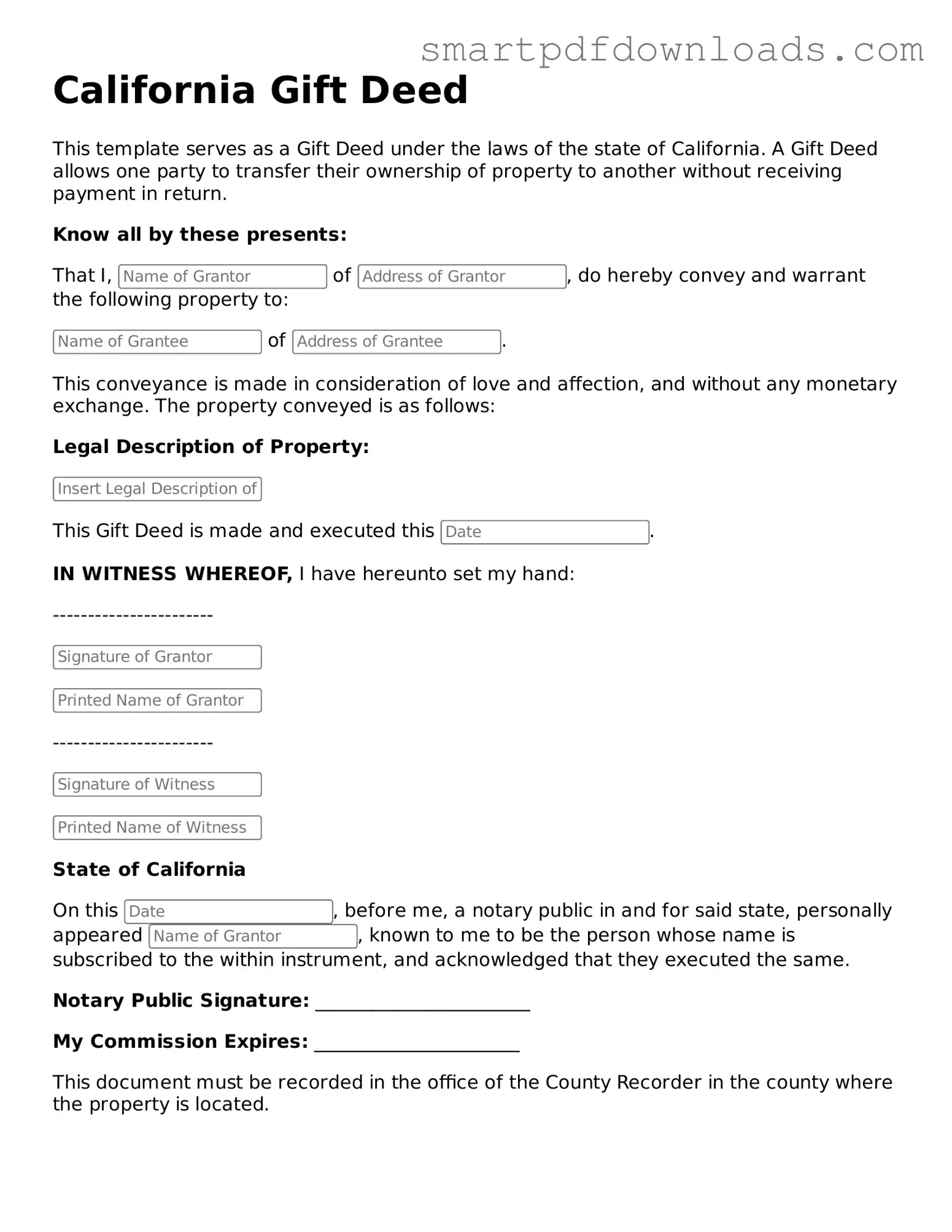Legal Gift Deed Form for the State of California
A California Gift Deed is a legal document used to transfer ownership of real property from one individual to another without any exchange of money. This form is often utilized when one party wishes to give property as a gift to a family member or friend. Understanding the specifics of this form can help ensure a smooth and clear transfer of ownership.
Edit Gift Deed Online

Legal Gift Deed Form for the State of California
Edit Gift Deed Online

Edit Gift Deed Online
or
⇓ PDF File
Finish the form and move on
Edit Gift Deed online fast, without printing.